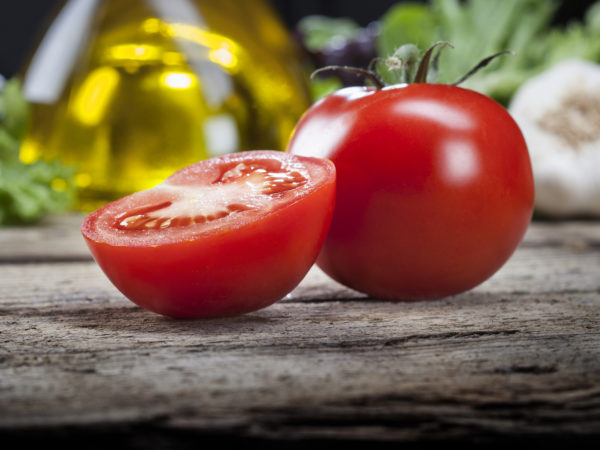Lycopene

What Is Lycopene?
Lycopene is a powerful antioxidant, which means that, among nutrients, it has a greater-than-average ability to “quench” free radicals that cause damage to cells. Excessive free radical damage has been implicated in the development of heart disease, Alzheimer’s disease and many cancers, as well as accelerated aging. It is a carotenoid, responsible for giving many fruits and vegetables – especially tomatoes – their red color. It is also abundant in red carrots, watermelons, papayas and pink grapefruit.
Why Is It Necessary?
Although beneficial, lycopene is not considered an essential nutrient for humans. Preliminary research shows it may be help to prevent heart disease, atherosclerosis, and even breast and prostate cancers. It may also be the most powerful carotenoid against singlet oxygen, a highly reactive oxygen molecule and a primary cause of premature skin aging. Lycopene is also found in cell membranes and plays an important role in maintaining the cell’s integrity when it is under assault by toxins. Some research has suggested that it may boost sperm concentrations in men with infertility, and lower risk of prostate cancer.
What Are The Signs Of A Deficiency?
Lycopene is not a precursor of vitamin A, so signs of vitamin A deficiency cannot be applied. In fact, immediate signs of deficiency are difficult to see, but inadequate intake of lycopene, and other carotenoids in general, over a period of time may lead to the development of chronic diseases such as heart disease and various cancers. However, there are so many potential causes for these conditions that it is impossible to definitively associate them with a lycopene deficiency.
How Much, And What Kind, Does An Adult Need?
Lycopene is a carotenoid and although there is no Daily Value for lycopene, Dr. Weil recommends including 15,000 IU (9 mg) of supplemental mixed carotenoids per day for teenagers and adults. When taking carotenoids, look for a formula that includes lycopene.
How Much Does A Child Need?
Dr. Weil recommends children aged six to 12 include 5,000 IU (3 mg) of mixed carotenoids as part of their daily multivitamin. However, you should always consult your child’s pediatrician before the child takes supplements.
How Do You Get Enough From Foods?
Regular ingestion of red fruits and vegetables is the best way to ensure you are obtaining enough lycopene in your diet.
Tomatoes and tomato-based prepared foods are the most prevalent source of lycopene in a typical American diet and can account for up to 85% of typical intake. For those who do not like or are allergic to tomatoes, recent studies have shown watermelon to be an excellent source as well and better tolerated by many people. Importantly, unlike other nutrients that may diminish or degrade when heated, the bioavailability of lycopene increases with cooking. This is one of the reasons Dr. Weil recommends against all-raw-food diets – they make it difficult to ingest enough lycopene to get the full benefit of its potential health effects.
Are There Any Risks Associated With Too Much?
There are no known risks from taking large quantities of lycopene. Excessive lycopene intake has been linked to temporary orange-hued skin discoloration called lycopenodermia, but it is not dangerous and skin color returns to normal after reduction of intake.
Are There Any Other Special Considerations?
- Although they are red, strawberries and cherries do not contain lycopene.
- Lycopene is fat-soluble, so a multivitamin containing this nutrient is best taken with food that contains fat.









